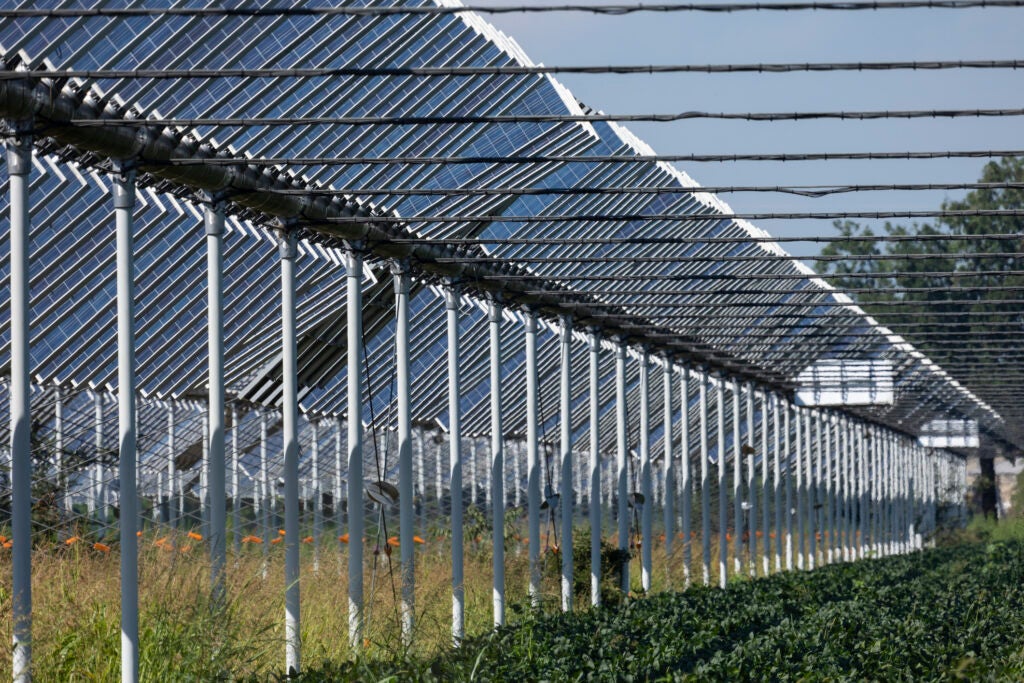VELUX Group has signed a dual-site deal with German renewable energy producer BayWa r.e. to power the Danish roof window manufacturer’s European operations with 100% renewable electricity by 2024. The two power purchase agreements (PPAs) will fund the development of two new solar parks in southern Spain, one close to Seville and the other near Granada. The Granada site, called Alhendín solar park, includes the installation of innovative agrivoltaics technology, allowing for crops to grow in-between the solar panels.
When connected to the grid in 2023 and 2024, the two plants will generate 167 gigawatt-hours of renewable electricity every year, equivalent to the electricity consumption of approximately 45,000 European homes. Around 80% of the electricity generated by the plants will be supplied to VELUX, with the remainder going into the grid. The PPAs will cut 40,000 tonnes of CO2 equivalent from the manufacturer’s European operations on a yearly basis.

Discover B2B Marketing That Performs
Combine business intelligence and editorial excellence to reach engaged professionals across 36 leading media platforms.

Around 10% of the Alhendín solar park will be an agrivoltaics installation, a pioneering solar application that combines food production and energy generation. This section will have taller, wider-spaced rows of panels to allow farming to continue and modern agricultural machinery to pass between the rows for crop production. The photovoltaic modules will also collect rainwater, helping the farmer combat droughts in what is typically an arid region.
Both solar plants will include plans to enhance local biodiversity and foster community engagement. To this end, BayWa r.e. will partner with nearby universities, Universidad Autónoma de Madrid and Universidad de Córdoba, to form an interdisciplinary research group to create a site development strategy. VELUX’s wider sustainability strategy also includes targets to erase its historical carbon footprint since its founding in 1941 and up to 2041 through forest conservation projects with the World Wide Fund for Nature and halving its value chain emissions by 2030.





